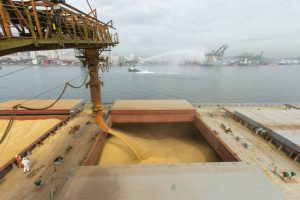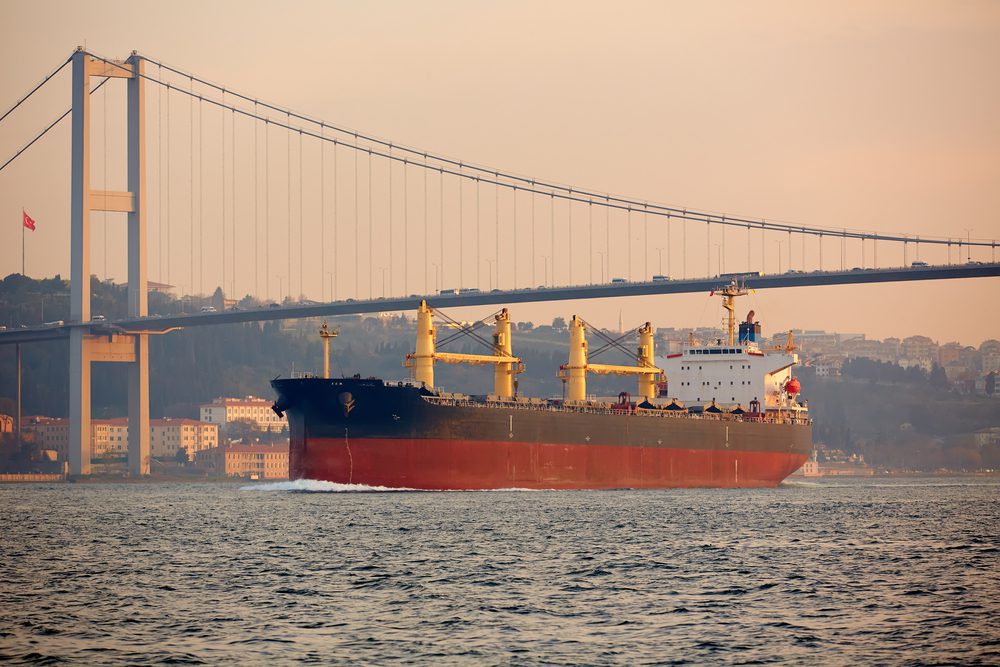Logistics through the EU countries should become so effective that Putin loses the sense to fire missiles at our ports
Yurii Shchuklin, logistics market expert, member of the logistics committee of the European Business Association.
Ukrainian agricultural exports have fallen into a perfect storm, when the influence of several unfavorable factors simultaneously threatens the fall of domestic prices for grain, compared to world prices, and the parallel increase in the cost of its delivery to markets.
The first factor behind the drop in domestic grain prices is the riskiness of Black Sea logistics due to missile attacks on ports, as well as Russia’s threats to attack all merchant ships in the Black Sea waters bound for Ukrainian ports.
The owners of port infrastructure damaged by shelling are unlikely to restore it till victory, even if the “grain corridor” is launched in one form or another. Those remaining port capacities and infrastructure will be sufficient for the operation of a small corridor.
But everyone understands: when transporting grain through the Black Sea, they are walking on the edge of a blade, and not only infrastructure, but also goods can be damaged. Therefore, the trade that decides to transport the goods this way will necessarily include in its margin the risks of destruction of the goods by rockets. Now less grain will go to Black Sea ports, and even that amount will be under a higher risk. This means that these risks will be paid for by someone.
The producer will be placed under conditions in which he will send the grain without advance payment, and will receive money only when the grain leaves the Black Sea. The price marker will be two categories of buyers. These are various types of adventurers who will buy grain at a low price, motivated by the extremely high risks of its damage or destruction before reaching the markets. Others are multinational traders who work in all countries, including the Russian Federation. They will gladly use the excuse to increase the margin on operations with our grain, explaining it by the same coverage of risks. Therefore, a fall in domestic prices is inevitable. Compared to world prices, our grain will trade at an even greater discount.
At the same time, the lack of an alternative channel for the transportation of Ukrainian grain, which would correspond to the Black Sea logistics in terms of absorption volume and price, becomes a factor in the increase in the cost of logistics. It is the riskiness of exports via the Black Sea that will determine the level of prices that will be set by the owners of alternative grain routing routes, in particular through the Danube and EU countries.
The more export routes, the cheaper the logistics on each route, because they compete, and vice versa. The logistics chain is the cost of a car, transshipment, that is, several components. And each of them becomes more expensive if this path is the only one. The owners of businesses operating with export goods on the routes through Izmail, Batyovo, Chop will react by raising the price of their services. Undoubtedly, recent events have added optimism to European infrastructure owners, who before the “grain corridor” dictated any price, and after that they practically lost demand for their services.
The saddest thing is that all the prerequisites for repeating last year’s overspending on railway logistics have appeared. Since the turnover of wagons to the ports of Great Odesa was 5 times better than through the western crossings, the operation of the “grain corridor” gave a signal to the owners of the wagons that a much smaller number of warehouses was needed for transportation. The absence of a “grain corridor” gives a reverse signal that the turnover of wagons can be unpredictable again: even 30 days, even 100. Even against the background of minimal exports, compared to previous years, the entire fleet of grain trucks may be involved in transportation again. And for its downtime, the manufacturer will again pay a lot of money.
The profitability of wheat production may be within zero. It is possible to prevent the fall in profitability and losses of farmers under the conditions of lowering the cost of logistics across European borders.
In the past harvest, the cost of wheat included fertilizers at pre-war prices. Today, the cost price of wheat, compared to previous years, has increased significantly and is 180 dollars/ton. If you sell it at the prices dictated by the trade, it is zero or in the red. This is a problem for the domestic market.
Without cheap logistics across European borders, we run the risk of finally killing any desire in the farmer to grow products. It is necessary to make logistics through the EU countries so efficient that Putin loses the sense of firing missiles at our ports. How to make this price cheaper? But it is simply necessary to remove unnecessary expenses and eliminate all those who speculate on the war, on both sides of the border.
I offered the President of the European Commission a technology and a system for planning rail transportation that would eliminate unjustified costs and corruption. Unfortunately, neither our nor the European officials were interested in this. The Atlantas, on which the Ukrainian agricultural sector rests, must realize that no one on both sides of the border is interested in their success and profits. If they want to keep the business, they have to ask: who and what prevents us from implementing modern principles of logistics, responsible planning, with the help of which we will open up Europe and make logistics cheaper?
In addition to opening the borders, the embargo must be lifted. And a system of transparent responsible planning, like a calculator, will provide mathematical arguments to those who closed the borders – so that they change their mind and open them. The more export routes we have, the cheaper logistics will be on all routes.





